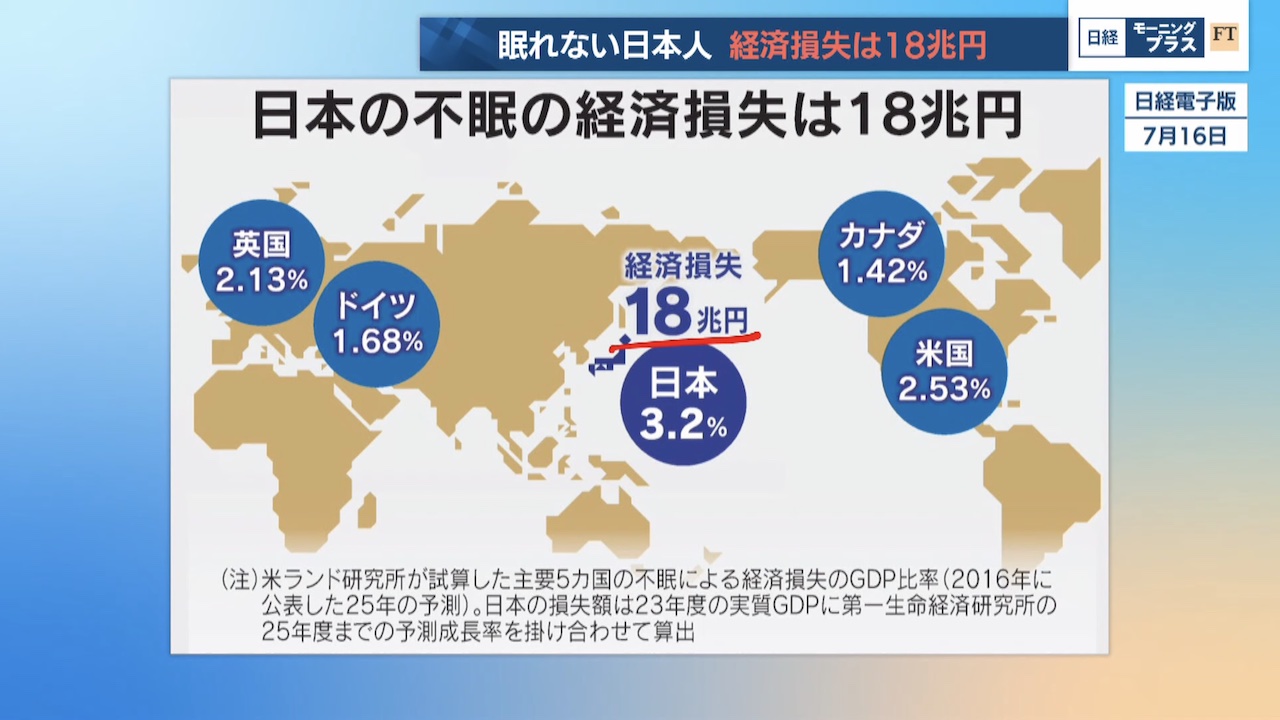TOKYO, Oct 16 (News On Japan) - Japan is grappling with a severe sleep deprivation crisis, with economic losses estimated at 18 trillion yen annually due to reduced productivity, according to a study by the RAND Corporation.
The issue has gained increasing attention, with both government officials and companies acknowledging the need for action. Prime Minister Ishiba recently addressed the problem in a policy speech, highlighting the national concern over insufficient sleep.
Experts, such as Yoshikuni Egawa, a professor at Ritsumeikan University, point out that Japan’s culture, which often values effort over rest, exacerbates the problem. Many workers boast about their ability to function with minimal sleep, contributing to the widespread issue of "presenteeism," where employees are physically present but not fully productive.
In response, several companies are developing strategies to mitigate the impact of sleep deprivation. Initiatives include industry-academia collaborations, such as Arinamin Pharmaceutical’s partnership with Tsuba University to research the relationship between fatigue and sleep. Additionally, the rise of "sleep tech" solutions, like AI-powered systems designed to enhance sleep quality, is gaining traction. Companies such as Daikin and Kyocera are at the forefront of creating products aimed at improving rest and recovery.
As the economic impact of sleep deprivation continues to grow, businesses are increasingly recognizing the importance of addressing this issue not only for employee well-being but also for maintaining productivity and preventing further financial losses.
Source: テレ東BIZ
















